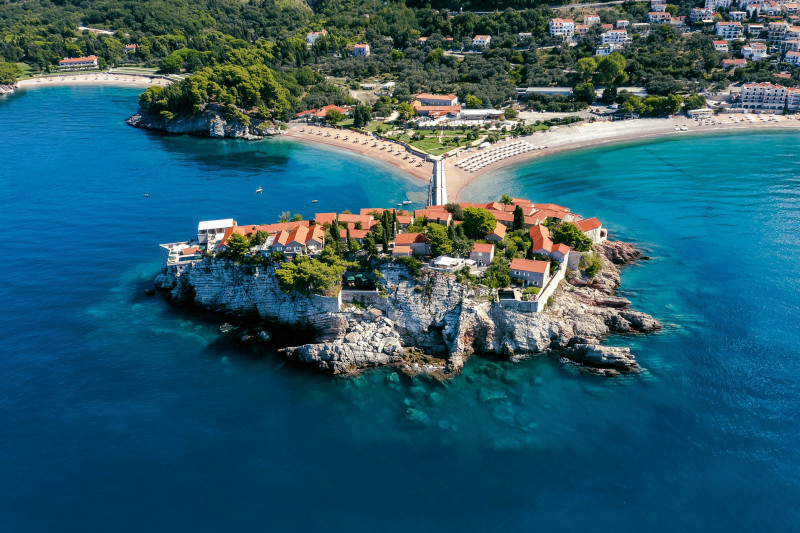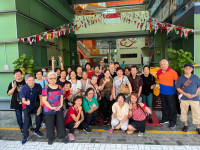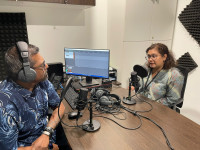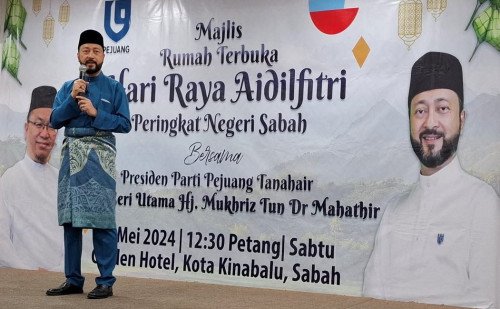HUNDREDS of people recently gathered in Montenegro for two months to form a pop-up community called Zuzalu. Their aim was to discuss biotechnological solutions designed to slow down human aging and live longer.
These longevity enthusiasts are even planning to create their own state to achieve this.
Is Zuzalu just another example of the elite's obsession with eternal youth?
For two months, from March to May, hundreds of hand-picked people – mainly biotech entrepreneurs, cryptocurrency investors and scientific researchers – flocked to Zuzalu, on Montenegro's Adriatic coast.
But you won't find this town on any map – it doesn't exist. This "pop-up city" was created entirely to enable the members of this community to meet up and mingle among themselves.
Behind the name Zuzalu, lies a community of "longevists" or "life extensionists" ready to defy death, or at least old age, by investing colossal sums in biomedical research and technological projects that border on science fiction.
At the head of this community is Vitalik Buterin, a Russian-Canadian computer programmer, who became a billionaire by inventing the Ethereum protocol, which gave rise to the Ether cryptocurrency, Bitcoin's great rival.
For two months, these "longevists" discussed biotech, medical innovation and slowing down the ageing process, during a series of conferences and more informal get-togethers.
With ultra-healthy breakfasts, yoga sessions, swimming, saunas, shorts and flip-flops, the atmosphere seemed ultra-relaxed, according to photos posted on social networks.
But don't be fooled by this atmosphere of a vacation club for the ultrarich – it's just a pretext. The real aim of this two-month experiment is to find out if this community could live together... permanently.
The ‘Longevity State’
For these "longevists," investing millions of dollars in biotechnology to extend life expectancy has its limits: namely, in the law. More specifically, the regulations governing the pharmaceutical industry, whether in the USA, Europe or elsewhere.
"I'm sufficiently ultra-liberal … who am I to prevent you from trying a compound?
"We’re all adults, and if you understand what you’re doing and understand the risk, then do it," says Josef Christensen, a Zuzalu attendee and chief business development officer at the stem-cell company StemMedical, speaking to MIT Technology Review.
But these libertarians have run up against a problem, not the least of which is a decision by the WHO not to recognise ageing as a disease. Such recognition would enable them to carry out multiple clinical trials with the agreement of the health authorities.
So, to free themselves from this legal framework, seen as a real constraint for their work, and carry out trials and experiments as they see fit, the idea is to found their own state.
This would be a decentralised space, financed by a community, with its own currency – a cryptocurrency in this case – and recognised by other nations. So how do you go about setting up this kind of network state?
The idea may sound crazy, but there are concrete examples around the world, such as Prospera, to name but one.
Inaugurated in 2020 on the island of Roatan in Honduras, Prospera is one of the ZEDEs – zones for employment and economic development – authorised in the 2010s by former Honduran president, Juan Orlando Hernandez.
In concrete terms, Prospera is a city-state focused on technological and medical innovation, with a low tax rate, its own laws and its own currency, Bitcoin.
This paradise for crypto-loving libertarians counts Silicon Valley heavyweights such as Peter Thiel, founder of PayPal, among its investors. Thiel also funds the Methuselah Foundation, an anti-aging foundation.
The members of Zuzalu – whose name intentionally does not mean anything in any language, according to an interview with Buterin – are planning to set up their own answer to Prospera, potentially in Montenegro.
But another possibility could be setting up in the United States. The country has a number of enthusiasts for these kinds of theories on ageing and, above all, a huge number of biotech companies.
And for this community, the state of Rhode Island would be a well-placed option, given its proximity to Boston, a major biotech center, and its small population (around one million people).
The plan would be to attract enough supporters to influence local and federal elections and, consequently, the politics of this East Coast state. – ETX Daily Up, June 14, 2023





















